When Accountability Becomes Part of Culture
Bryan Gillum • August 29, 2022
Accountability is all of the talk in business…..at least for most of our clients.
The leaders I talk with are frustrated by employees who don’t show up consistently, don’t show an interest in the work they are assigned, and choose to not communicate instead of acknowledging that work wasn’t completed. These leaders tell me they are craving a workforce that completes the work they are assigned, on time and without grumbling.
We recently had a client ask us to help them build a culture of accountability. While it sounded super fancy, they basically wanted their employees to show up on time, complete their assigned work well, and communicate when something goes wrong. As we dove into the expectations, what they were asking for was very similar to the expectations I had of my kids in 8th grade! They weren’t asking for people to give their lives to the company – simply putting their dishes in the dishwasher or wiping off the remnants of their Chinese from the table in the eating area would be viewed as a success. Isn’t it amazing how employees are either not capable or not interested in completing some of these basic tasks that are after-thoughts in their own home?
Anyway, we worked with them to create the basic expectations for employees in three areas:
-Accountability to themselves
-Accountability to their team
-Accountability to the organization
We defined the “price of admission”, or minimum expectations for individual contributors and leaders in each area. These began to serve as the “Basic Rules to Live By”. They included things like:
-Clean up after yourself; your Mom doesn’t work here
-Show up on time….or better yet, be early
-Bad news can’t wait, share broadly and don’t be afraid to own your mistake
-Smiles are the cheapest way to brighten a day; share generously
-Show that you care about your work, even if you have to fake it
-When others look like they need help they probably do, lend a hand or two
Pretty basic stuff, right? We created specific examples of these basic rules and identified ways to measure success. We posted pictures throughout their offices, sent clever reminders about these basic rules and came up with a fun contest to reward people who live the rules and those who observe others living by the basic rules (and share with others). We have seen progress, it was methodical but noticeable and even measurable. We have been able to identify tangible results and the impact the transformation has had on operational goals.
Now, we are starting to get into the fun part. Stretch goals to create a culture of accountability that is “knock you upside the head” noticeable. We are raising the bar from “Basic Rules to Live By” to create “How Will People Know We Care”. We are starting to have interesting conversations like:
-What it means to act with humility.
-What does persistent positivity look like?
-How can we embrace tough feedback as a gift?
-How can an employee show their commitment to the future of the organization?
These conversations are beginning to impact their business strategy and goals. The company is realizing that as their employees “buy-in” to a culture of accountability, the entire organization is beginning to see their company through a different lens - a lens of excitement and anticipation. The employees are now setting their sights on 2023 and 2024 instead of punching out at 5 PM.
Building a culture of accountability is hard and takes a lot of time and effort. It also produces a very rewarding experience that will transform the culture and performance of the business. If you’d like to hear more about the journey and how we could help you start a similar voyage, contact us at
bgillum@cmaxadvisors.com. We’re happy to share how you can get started.

In today's highly competitive job market, finding and retaining the right talent for your business is more critical than ever. In fact, according to a recent release from Monster.com, 96% of workers will be seeking some type of new position in 2023 . However, the hiring process can be challenging, and many businesses struggle to find the right candidate for the job. That's where recruitment partners come in. A recruitment partner can help you find the right talent and streamline the hiring process. In this blog, we'll discuss 5 signs that indicate you may need a third-party to help you with your hiring needs. 1. Inability to Attract Qualified Candidates If you're struggling to attract qualified candidates for your job openings, it may be time to consider partnering with a recruitment firm. A good firm can assist you in identifying the root cause of the issues and collaborate with you to create an effective hiring strategy. With their extensive network of both active and passive job seekers, they can help you find the ideal candidate for your organization. 2. Time Constraints and Limited Resources Another sign that you may need to seek out help is when you feel pressed for bandwidth, and you are unable to dedicate the necessary time to the hiring process. A recruitment partner can handle the hiring process for you, from posting job openings to screening candidates and conducting interviews. This frees up your time to focus on other aspects of your business. 3. High Turnover Rates Nothing is more frustrating than making a hire only to lose that persona a short time later. Additionally, high employee turnover can be costly and affect productivity and morale. By bringing on a consultant, they can help you objectively identify why employees are leaving and find ways to improve retention. They can also help you create job descriptions that accurately reflect the role and company culture, ensuring that you attract candidates who are a good fit for your organization. 4. Lack of Industry Knowledge If you're not familiar with the job market in your industry, it can be challenging to find the right candidates for your organization. A recruitment partner has industry knowledge and can provide insights into the job market and salary trends. They can help you create competitive offers that attract top talent and ensure that you find the right candidate for the job. 5. Employer Brand Reputation Your employer brand reputation is essential to attracting top talent. If your business has a poor reputation, it can be challenging to attract the right candidates. Having the right consultant can help you improve your employer brand by providing insights into what candidates are looking for in a job and what makes a company attractive to potential employees. They can also help you create a positive candidate experience, ensuring that even candidates who don't get the job leave with a positive impression of your organization. In conclusion, hiring the right talent for your business can be challenging to do by yourself. However, with the help of the right recruitment partner, you can streamline the hiring process and find the best candidate for the job. If you're experiencing any of the signs outlined in this blog, reach out to us today for a free consultation to see if we are the right fit to help your team.


